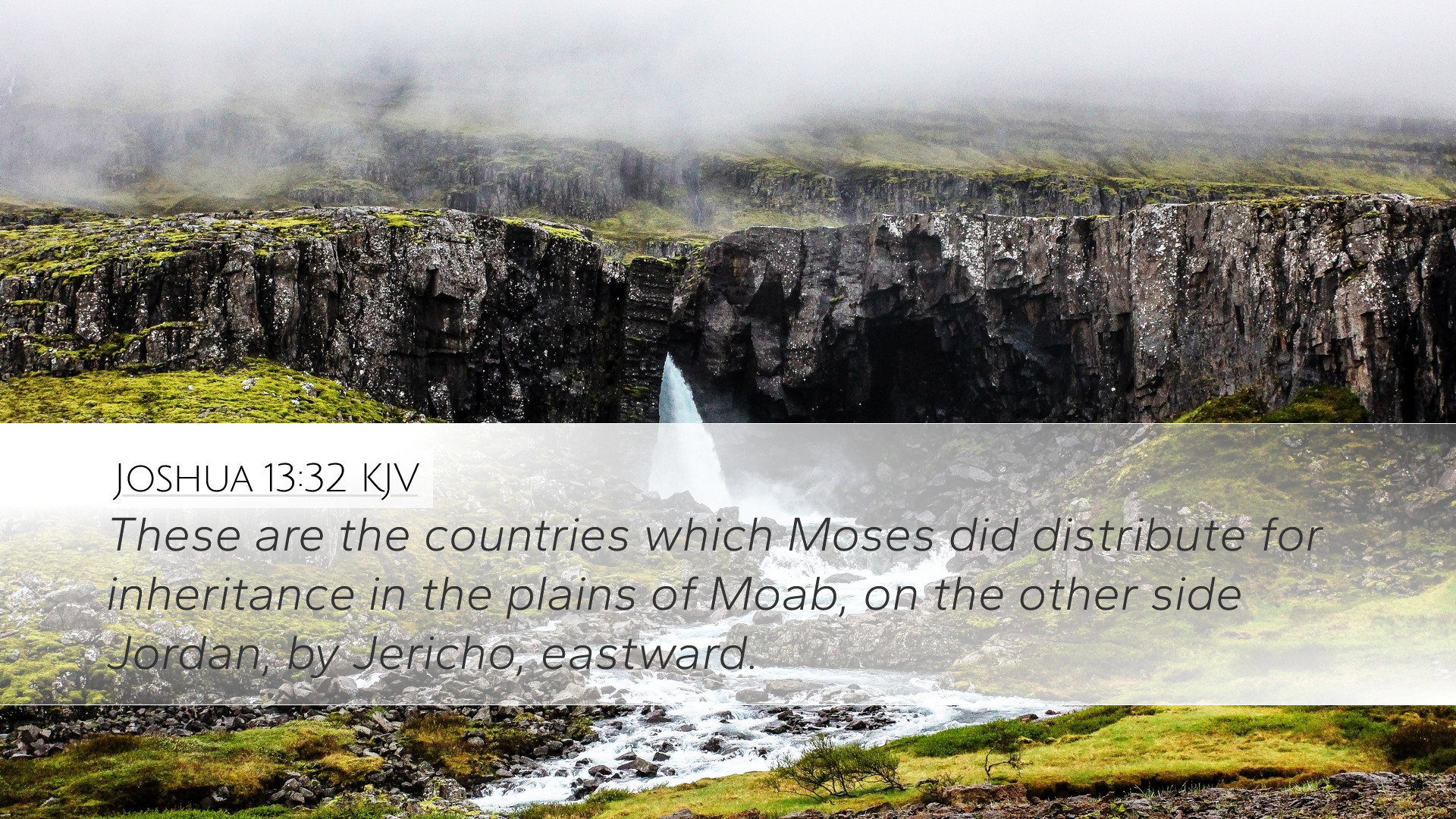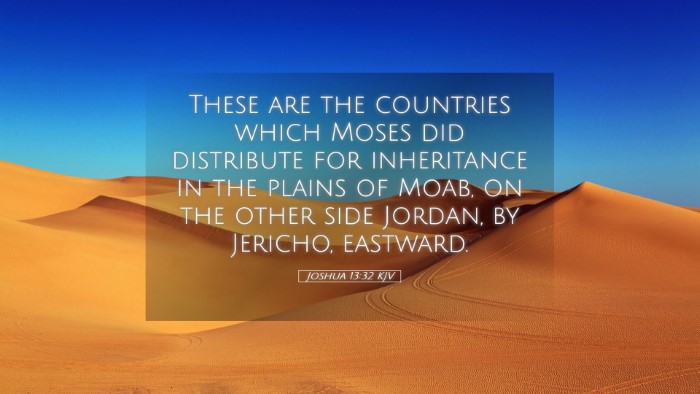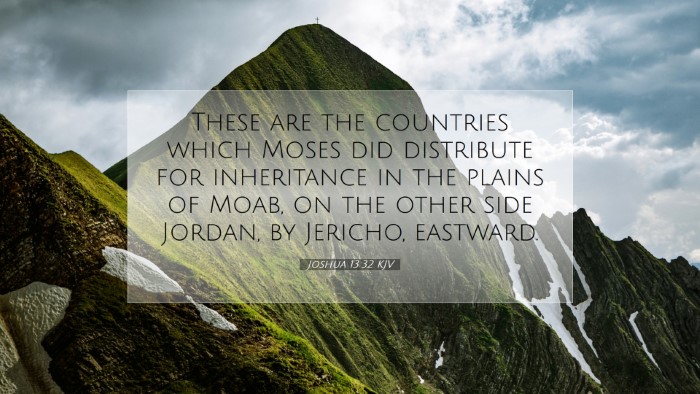Commentary on Joshua 13:32
This verse states: "These are the countries which Moses did distribute for inheritance in the plains of Moab, on the other side Jordan, by Jericho eastward." This verse serves as a crucial point in the narrative of Israel's inheritance of the Promised Land.
Contextual Background
Joshua 13 marks a significant transition in the story of Israel. The Israelites have wandered in the wilderness for forty years, and now, under Joshua’s leadership, they are poised to claim their inheritance. As Moses had led them through the desert, it is he who has also delineated the territories, preparing the people for their allotment. This passage thus serves both as a conclusion to Moses' anterior work and a prelude to Joshua's subsequent military campaigns for land acquisition.
Moses’ Role and the Distribution of Land
According to Albert Barnes, Moses allocated land even before entering the Promised Land. This was vital; he ensured that the territorial claims were well-established and that the tribes understood their inheritance. Moses’ foresight exemplifies God’s providence, even in the midst of doubts and challenges faced by the Israelites.
Matthew Henry emphasizes that this distribution highlights God’s faithfulness to His promises. The land detailed in this verse represents God's tangible blessings, bringing assurance that His covenant will be fulfilled. The settlements and borders designated by Moses foreshadow the future stability and prosperity that Israel would enjoy in obedience to divine decrees.
The Geographic and Spiritual Significance
This territory, described as being in the "plains of Moab" and "on the other side Jordan," symbolizes both a spiritual and physical demarcation point in Israel's journey. Adam Clarke notes that the positioning east of the Jordan signifies a land of promise - it is not just about geography, but about an era of fulfillment in the lives of the Israelites. Furthermore, this area becomes a foundational aspect of their identity as a nation.
Reflection on the Plain of Moab
The "plains of Moab" represent the transition into a new chapter of the Israelite experience. It is here, just before entering Canaan, that they are reminded of God's covenant and fidelity. Henry reminds readers that even areas not directly in the Promised Land (like Moab) can hold significance in fulfilling God’s purposes.
Implications for Today
The passage provides rich insights applicable to contemporary believers and leaders. Firstly, it emphasizes the importance of faithful leadership in guiding communities towards God’s promises. Secondly, the act of land distribution can symbolize the impartation of spiritual gifts and callings within the body of Christ. Each believer comes into their relationship with God possessing distinct purposes.
Lessons for Leadership
- Preparation: Just as Moses prepared the people for the land, leaders must prepare their congregations for divine encounters.
- Foresight and Vision: Visionary leadership acknowledges the need for detailed planning, anticipating the needs of the community.
- Trust in God: Leaders must instill confidence in God's promises, ensuring followers understand their spiritual inheritance.
Theological Reflections
This verse subtly reflects themes of inheritance and belonging, pertinent throughout the whole of Scripture. The inheritance of land serves as a prefiguration of the believers’ inheritance in Christ (Ephesians 1:11). The act of distribution can be seen as a reminder of God’s grace in providing for His people. Just as the Israelites received physical land, Christians today receive spiritual blessings and eternal life through Christ.
The Concept of Spiritual Inheritance
Connecting the physical to the spiritual realm, Barnes posits that every believer is invited to partake in the eternal inheritance through faith. Just as the early Israelites were assured of their physical portion, today’s believers have a promise of a far greater inheritance, one that transcends mere worldly possessions.
Conclusion
Joshua 13:32 encapsulates significant theological truths about God’s provision, faithfulness, and the importance of leadership. As pastors, theologians, and students of the Word, it is crucial to engage with this text, understanding the broader narrative of God’s covenant with His people. The careful preparation of land and community speaks volumes about God's desire for His people to dwell in His promise and blessing.
The insights from Matthew Henry, Albert Barnes, and Adam Clarke encourage modern readers not only to acknowledge the historical context but to reflect on its application in our personal walks of faith as we navigate the earthly journey towards our ultimate inheritance in Christ.


